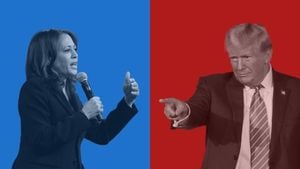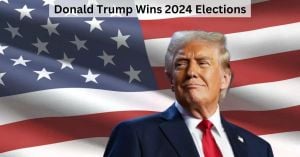With the U.S. midterm elections looming and the 2024 presidential race heating up, schools across the nation are leveraging this opportunity to educate students about the voting process. Educational establishments are implementing various initiatives, from mock elections to field trips, allowing students, particularly seniors, to experience the electoral process first-hand.
Many high school principals and educators recognize election years as ideal moments to instill the importance of civic engagement. "Every election is important, and the future generation should understand their role within democracy," says Katie Law, principal of Arapahoe Charter High School, based in Wyoming. Her school, which primarily serves tribal communities, has set out to create memorable experiences for students preparing to vote for the first time on Election Day.
Law is particularly enthusiastic about taking her six eligible voters to various polling places on election day. "We have a polling spot right on campus, which will allow the kids to fill out their ballots in privacy. Afterward, we’ll tour other polling locations, letting the students observe how the process works on the ground. This can be both exciting and eye-opening," she shared.
While experiential learning may be limited to smaller schools, larger institutions are still finding ways to engage students and discuss the significance of their participation. Matt Haney, principal of Mount Desert Island High School in Maine, explained their approach, stating they held voter registration drives and offered focused classes examining local, state, and national politics. Their special quarter-long course aimed to educate students comprehensively about the upcoming presidential election, enabling students to comprehend the broader electoral system.
An analysis conducted by Tufts University reveals approximately 41 million Generation Z individuals are eligible to vote, with around 8 million participating for the first time. This substantial demographic could significantly impact the current race between Donald Trump and Kamala Harris, with educators emphasizing the importance of students exercising their voting rights.
Meanwhile, late-night TV hosts are engaging audiences by addressing the election. On the night before Election Day, Jimmy Kimmel remarked on the anxiety felt nationwide. “We are now one day away from having to wait another week to find out who won the election,” he quipped, likening the experience to the suspenseful wait for medical results. He emphasized the extended nature of this electoral process, poking fun at the sheer number of days since Trump announced his candidacy two years prior. One of his recurring jokes was about how the polls might simply reflect varying moods rather than actual voter sentiments. “These polls? They’re mood rings. That’s all they are,” Kimmel said during the segment.
Seth Meyers echoed some of Kimmel's sentiments, raising the ludicrous nature of tied polls and the stark choice voters face on Election Day. “How can so many polls be tied?” he questioned, humorously speculating about the locales from which survey samples were drawn. His commentary emphasized the deeply polarized opinions about Trump, noting the contradictory perceptions of the former president's character.
Stephen Colbert also joined the ranks of late-night hosts dissecting election day dynamics. Drawing parallels to ancient history, Colbert quipped, “After two years of campaigning, we’re witnessing history. Good or bad, I’m guessing this is how the people of Pompeii felt when Vesuvius was trying to get re-elected.” Colbert aimed to cut through the tension surrounding the elections with humor, pointing out absurdities like the unpredictability of polls. He enthusiastically referenced one particularly favorable poll reflecting well on Harris, humorously commenting on the sentiments of "senior women" swinging toward her favor.
Despite the lighthearted banter from late-night hosts, analysts and everyday voters alike recognize the stakes of this year’s election are monumental. Crucial changes can be at stake, depending on whether voters rally behind Harris or return to Trump’s leadership. Voter turnout could decide the control of Congress, with Democrats hoping they can regain some power through engagement and increased participation from young voters.
Election events to reflect both local and national sentiments will take place across the country, showcasing the vibrant democracy at play. Schools, late-night show hosts, and eager voters are all coming together to contribute to the election narrative. The messages are clear: informing the next generation about their voting rights is more important than ever, even as public and private dialogues stir up excitement and dread surrounding the election outcome.



